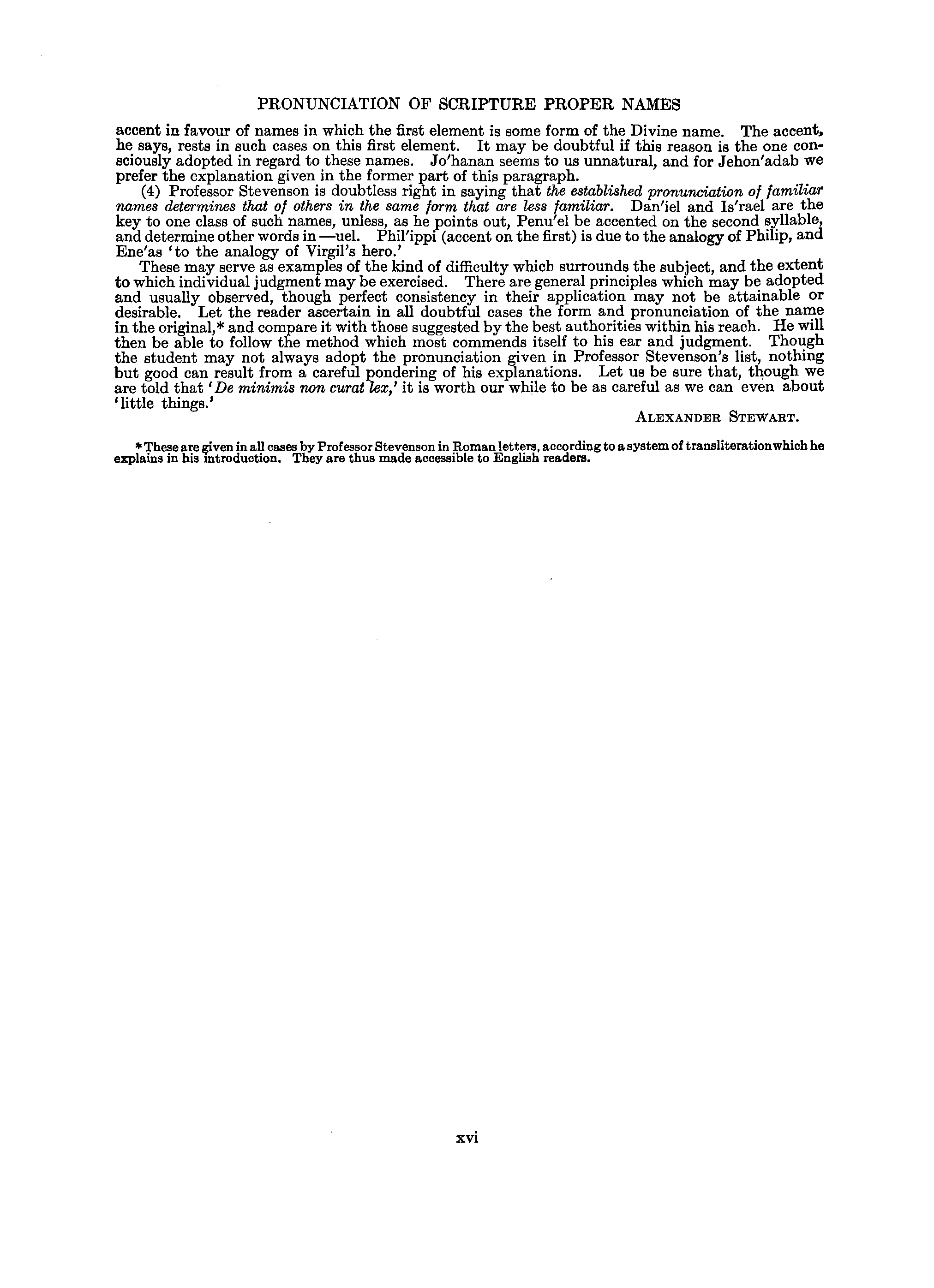PRONUNCIATION
OF
SCRIPTURE
PROPER
NAMES
accent
in
favour
of
names
in
which
the
first
element
is
some
form
of
the
Divine
name.
The
accent,
he
says,
rests
in
such
cases
on
this
first
element.
It
may
be
doubtful
if
this
reason
is
the
one
con-sciously
adopted
in
regard
to
these
names.
Jo'hanan
seems
to
us
uimatural,
and
for
Jehon'adab
we
prefer
the
explanation
given
in
the
former
part
of
this
paragraph.
(4)
Professor
Stevenson
is
doubtless
right
in
saying
that
the
established
pronunciation
of
familiar
names
determines
that
of
others
in
the
same
form
that
are
less
familiar.
Dan'iel
and
Is'rael
are
the
key
to
one
class
of
such
names,
unless,
as
he
points
out,
Penu'el
be
accented
on
the
second
syllable,
and
determine
other
words
in
—
^uel.
Phil'ippi
(accent
on
the
first)
is
due
to
the
analogy
of
Philip,
and
Ene'as
'to
the
analogy
of
Virgil's
hero.'
These
may
serve
as
examples
of
the
kind
of
difficulty
which
surrounds
the
subject,
and
the
extent
to
which
individual
judgment
may
be
exercised.
There
are
general
principles
which
may
be
adopted
and
usually
observed,
though
perfect
consistency
in
their
application
may
not
be
attainable
or
desirable.
Let
the
reader
ascertain
in
all
doubtful
cases
the
form
and
pronunciation
of
the
naine
in
the
original,*
and
compare
it
with
those
suggested
by
the
best
authorities
within
his
reach.
He
will
then
be
able
to
follow
the
method
which
most
commends
itself
to
his
ear
and
judgment.
Though
the
student
may
not
always
adopt
the
pronunciation
given
in
Professor
Stevenson's
list,
nothing
but
good
can
result
from
a
careful
pondering
of
his
explanations.
Let
us
be
sure
that,
though
we
are
told
that
'De
minimis
non
curat
lex,'
it
is
worth
our
while
to
be
as
careful
as
we
can
even
about
'little
things.'
Alexander
Stewart.
*
These
are
given
in
all
cases
by
Professor
Stevenson
in
Roman
letters,
according
to
a
system
of
transliterationwhich
he
explains
in
his
mtroduction.
They
are
thus
made
accessible
to
English
readers.

